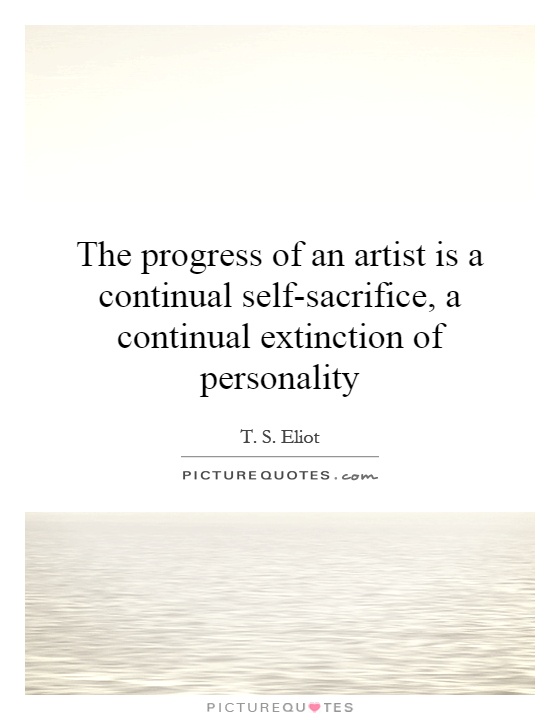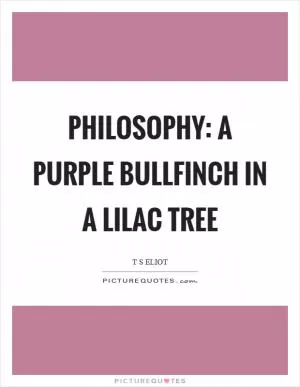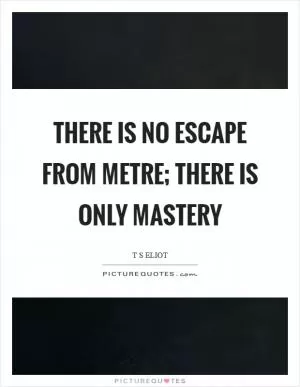The progress of an artist is a continual self-sacrifice, a continual extinction of personality

The progress of an artist is a continual self-sacrifice, a continual extinction of personality
T.S. Eliot, one of the most influential poets of the 20th century, understood the sacrifices that artists must make in order to truly excel in their craft. In his essay "Tradition and the Individual Talent," Eliot famously wrote, "The progress of an artist is a continual self-sacrifice, a continual extinction of personality." This statement speaks to the idea that in order to create truly great art, an artist must be willing to put aside their own ego and desires in service of their work.For Eliot, the idea of self-sacrifice was essential to the creative process. He believed that in order to tap into the universal truths that underlie all great art, an artist must be willing to let go of their own individual concerns and desires. This means putting aside personal biases, preferences, and even one's own sense of self in order to create something that transcends the individual.
Eliot's own work is a testament to the power of self-sacrifice in art. His poetry is known for its complexity, its depth, and its ability to capture the essence of the human experience. This level of insight and understanding could only have been achieved through a willingness to let go of his own ego and allow the universal truths of the world to flow through him.












 Friendship Quotes
Friendship Quotes Love Quotes
Love Quotes Life Quotes
Life Quotes Funny Quotes
Funny Quotes Motivational Quotes
Motivational Quotes Inspirational Quotes
Inspirational Quotes